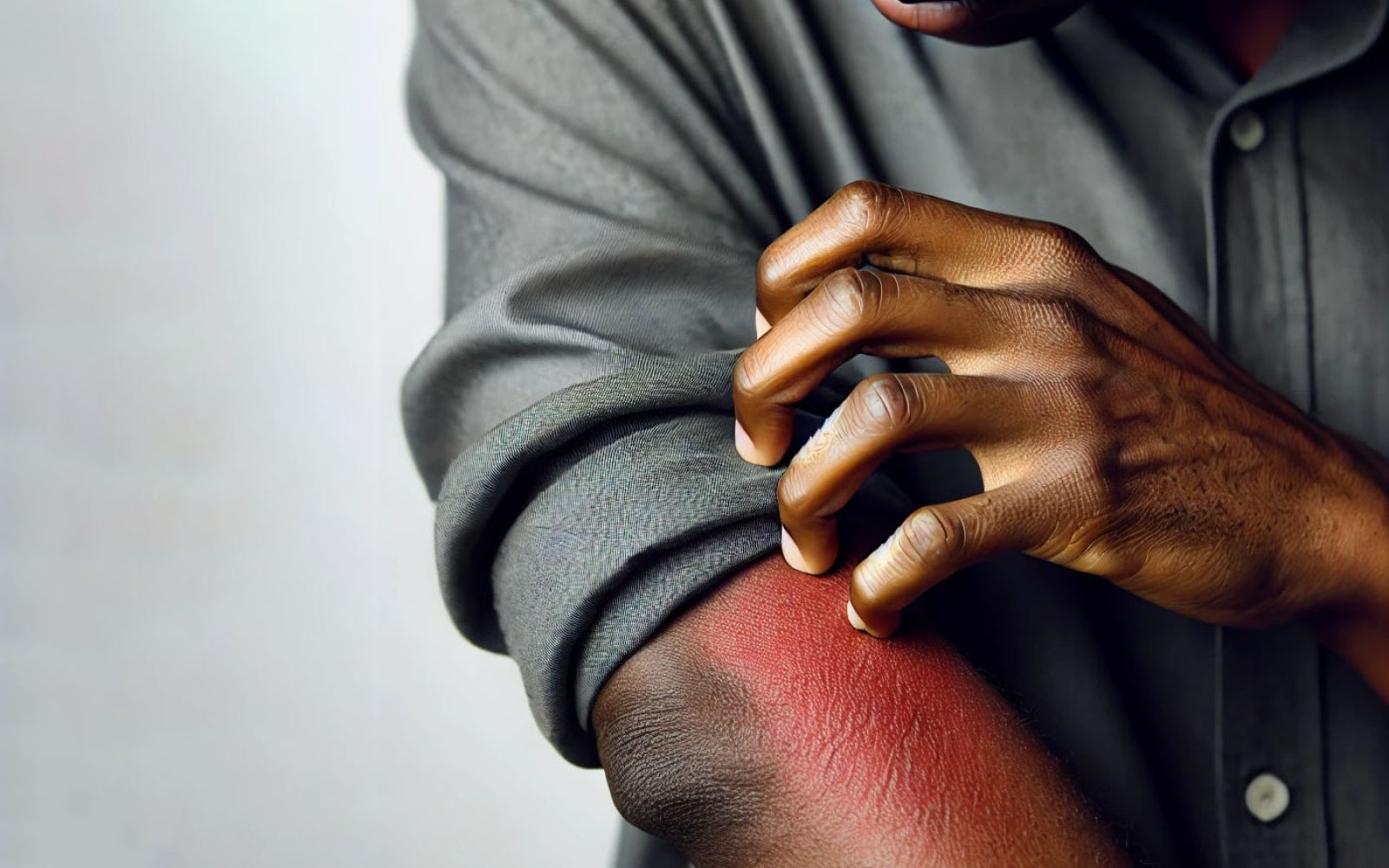Focus on psoriasis.
Psoriasis is a chronic skin condition that can lead to other health complications.

Psoriasis is a long-lasting skin condition that appears when the immune system attacks your skin cells. This can lead to a buildup of skin cells on the surface and cause the skin to turn red. Psoriasis can form anywhere on the body, but typically forms on the elbows, knees, scalp, trunk, palms, and soles of the feet. Symptoms of psoriasis may include:
- Patches of thick, red skin with silvery-white scales.
- Itchy or burning skin.
- Soreness.
- Dry, cracked skin that itches or bleeds.
- Thick, ridged, pitted nails.
These symptoms will often cycle, flaring for a period of time, then subsiding. Because psoriasis can cause discomfort it can lead to poor sleep quality. Some people with psoriasis also experience joint inflammation that produces arthritis-like pain. This condition is called psoriatic arthritis.
Types of psoriasis
There are several types of psoriasis:
- Plaque Psoriasis: This is the most common. It is characterized by raised, red patches of skin that are covered by silvery-white scales.
- Guttate Psoriasis: This is often seen in children or young adults. Respiratory tract infections, like strep throat, may lead to an outbreak of small, red dots on the torso or limbs.
- Inverse Psoriasis: Defined by smooth, red patches, this type often forms in folds of skin beneath the breasts or in the groin or armpits. Friction and sweat can make it worse.
- Pustular Psoriasis: Triggered by medications, infections, stress or certain chemicals, this form is characterized by white pus-filled blisters surrounded by red skin.
- Erythrodermic Psoriasis: A rare type of psoriasis where red, scaly skin covers most of the body. It can be triggered by a bad sunburn or certain medications, like corticosteroids.
Triggers
People who are prone to psoriasis outbreaks should be aware that there are factors that may trigger or make the situation worse. These are:
- Physical and emotional stress.
- Injury to the skin such as cuts or burns.
- Infections, especially strep throat.
- Cold weather.
- Smoking or heavy alcohol use.
Diagnosis and treatment
To diagnose psoriasis, your doctor will examine your skin for signs of the condition and ask about your family health history. In certain instances, they may do a biopsy of a skin sample to rule out other disorders.
Depending on your symptoms the doctor may recommend using over-the-counter lotions and bath supplements. These can help remove redness, itching and scales. In addition, the doctor may prescribe a cream you apply to the affected area or other medicines taken as a pill or injection.
If a large area of the skin is involved, the doctor may recommend phototherapy where an ultraviolet light is shined on the affected skin.
Other risks
Not everyone with psoriasis is at risk for other disorders. However, severe psoriasis has been linked to heart conditions, obesity, high blood pressure and diabetes.
Getting help
If you have a skin condition and would like to meet with a doctor, visit Nashville Healthcare Center’s Primary Care website to learn more about our services and schedule an appointment. Our primary care providers can help diagnose chronic conditions, like psoriasis, and establish a personal treatment plan.
This information is not intended to be a substitute for professional medical advice. You should talk with your primary care physician or other qualified medical professionals regarding diagnosis and treatment of a health condition.



